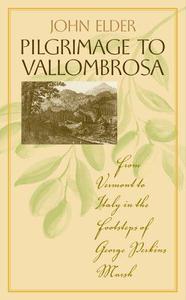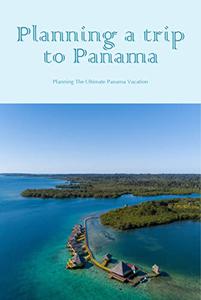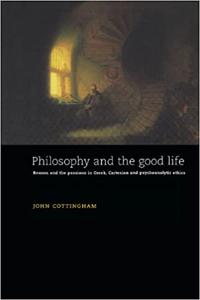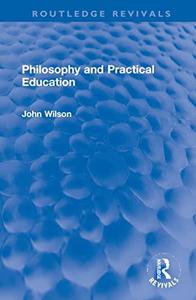 Pilgrimage to Vallombrosa: From Vermont to Italy in the Footsteps of George Perkins Marsh By John Elder
Pilgrimage to Vallombrosa: From Vermont to Italy in the Footsteps of George Perkins Marsh By John Elder2006 | 300 Pages | ISBN: 0813925762 | PDF | 2 MB
"Set aside your Bella Tuscanys and Year in Provences for a different kind of travel book. Pilgrimage to Vallombrosa puts a walking stick in your hand and Marsh's Man and Nature in your knapsack, exploring how Italians have managed their natural and cultural heritage in ways that sustain both. John Elder's poetic meditations on land and life demonstrate that only by searching beyond our familiar boundaries can we discover better ways of living back at home."―Marcus Hall, author of Earth Repair: A Transatlantic History of Environmental Restoration "This collaboration―between George Perkins Marsh and John Elder, between Vermont and Italy, between maple and olive―is one of the smartest, soundest, deepest books about the relationship between people and nature that I've ever read. It will be a classic."―Bill McKibben, author of The End of Nature"Elder's impassioned pilgrimage shows us how to delight in messy wilderness, to secure a curative habitation of the world, and, with Marsh, to lend ecological nous to our gravest task: knowing ourselves and respecting one another. Let the maple seeds and olive stones of Elder's visionary harvest restore to us a reflective and redemptory future."―from the foreword by David LowenthalThe pivotal figure in Pilgrimage to Vallombrosa is the nineteenth-century diplomat and writer George Perkins Marsh, generally regarded as America's first environmentalist. Like Elder, Marsh was a Vermonter, and his diplomatic career took him for some years to Italy, where, witnessing the ecological devastation wrought upon the landscape by runaway deforestation and the plundering of other natural resources, he was moved to produce his famous manifesto, Man and Nature. Marsh drew parallels between the despoiled Italian environment and his home landscape of Vermont, warning that the latter was vulnerable to ecological woes of a similar magnitude if not carefully maintained and protected. In short, his was a prescient voice for stewardship. Elder follows in Marsh's footsteps along a trajectory running from Vermont to Italy, and at length fetches up at the managed forest of Vallombrosa. Punctuated throughout with learned and genial considerations of the poetry of Wordsworth, Basho, Dante, and Frost, Elder's narrative takes up issues of sustainability as practiced locally, reports on family doings, and returns finally―as did Marsh's―to Vermont, where he measures traditional stewardship values against more aggressive conservation-oriented measures such as the expansion of wilderness areas. John Elder, Professor of English and Environmental Studies at Middlebury College, is the author of Reading the Mountains of Home and The Frog Run.Under the Sign of Nature: Explorations in Ecocriticism



![S.T.A.L.K.E.R. 2 / STALKER 2: Heart of Chornobyl - Ultimate Edition (2024) [+UPDATE 23.12.2024 - v1.1.3] ElAmigos / Polska wersja językowa](https://i.postimg.cc/Zqd8RWGY/UZG8PBE.jpg)



















































![David Gilmour - Luck and Strange (2024) [FLAC]](https://i.imgur.com/everaBc.jpeg)
![Męskie Granie Orkiestra - Męskie Granie 2024 (2024) [FLAC]](https://i.imgur.com/FAyOxrM.jpeg)
![The Rolling Stones - Hackney Diamonds (2023) [FLAC]](https://i.imgur.com/wCkyyUN.jpg)
![Lady Gaga - Harlequin (2024) [FLAC]](https://i.imgur.com/dcgIA8D.jpeg)
![Natalia Kukulska - Dobrostan (2024) [FLAC]](https://i.imgur.com/bdljG3O.jpeg)
![Kaśka Sochacka - Ta druga (2024) [FLAC]](https://i.imgur.com/hORQKvn.jpeg)
![Kuba Sienkiewicz - Pani Bóg (2024) [FLAC]](https://i.imgur.com/qijCx8Z.jpeg)
![Lanberry - Heca (2024) [FLAC]](https://i.imgur.com/8P7QfeR.jpeg)
![Sara James - PLAYHOUSE (2024) [FLAC]](https://i.imgur.com/m4f8OKg.jpeg)
![Grzegorz Hyży - EPILOG (2024) [FLAC]](https://i.imgur.com/8DA2sBr.jpeg)
![Myslovitz - WIECZORAMI CHŁOPCY WYCHODZĄ NA ULICE (2024) [FLAC]](https://i.imgur.com/l9mMtIG.jpeg)
![Krzysztof Zalewski - ZGŁOWY (2024) [FLAC]](https://i.imgur.com/vh48RAc.jpeg)
![Krzysztof Cugowski - Wiek to tylko liczba (2024) [FLAC]](https://i.imgur.com/SBzgqe2.jpeg)
![Nosowska - Kasia i Błażej (2024) [FLAC]](https://i.imgur.com/mObvVXQ.jpeg)
![sanah - Pianinkowe Kaprysy (2024) [FLAC]](https://i.imgur.com/pVjjPAa.jpeg)
![Kwiat Jabłoni - Pokaz slajdów (2023) [FLAC]](https://i.imgur.com/diERHfZ.jpg)
![Robert Cichy - Spacer po Warszawie (2024) [FLAC]](https://i.imgur.com/ixleU9o.jpeg)
![Viki Gabor - Terminal 3 (2024) [FLAC]](https://i.imgur.com/Q1KCnDs.jpeg)
![Sanah - Kaprysy (2024) [FLAC]](https://i.imgur.com/71OZm4h.jpeg)
![Męskie Granie Orkiestra - Męskie Granie 2023 (2023) [FLAC]](https://i.imgur.com/U4YHo8d.jpg)




